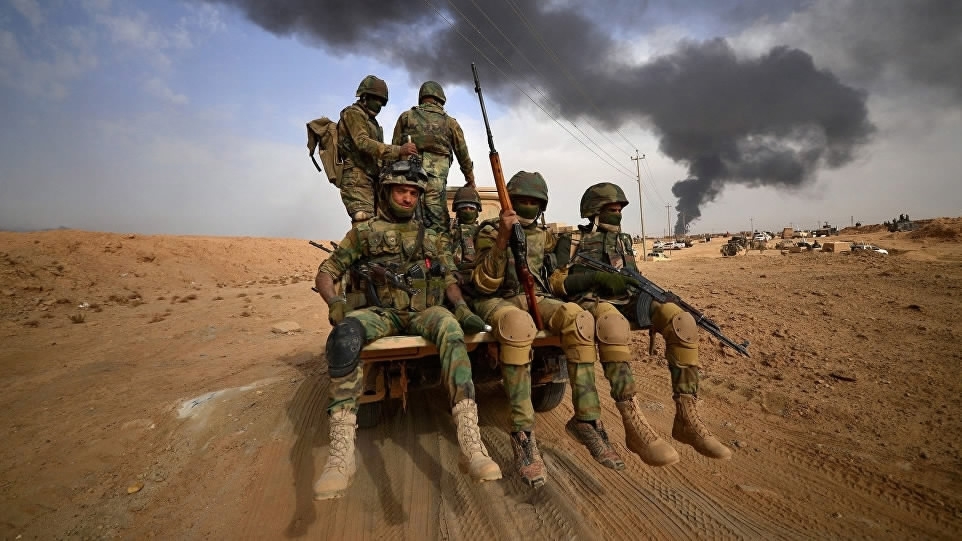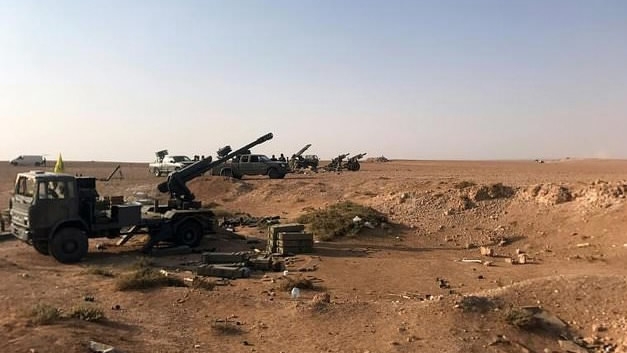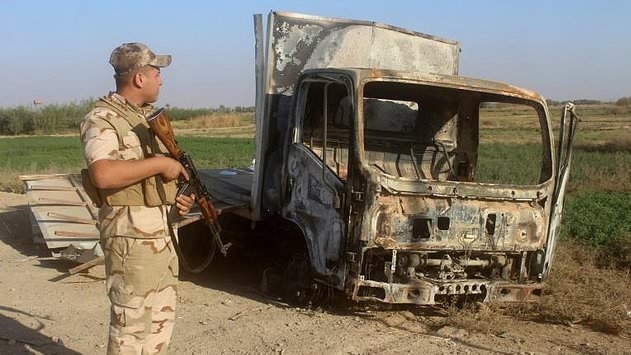
Politics
18:01, 17-Nov-2017
Iraqi forces retake last ISIL-held town in country
CGTN

The Iraqi army retook the last town in the country still held by ISIL group on Friday as the jihadists' self-proclaimed "caliphate" faced collapse on both sides of the border with Syria.
The lightning recapture of the small Euphrates valley town of Rawa in an offensive launched at dawn came as the jihadists were also under attack for the second day in the last town they still hold in Syria, Albu Kamal just over the border.
The ISIL has lost 95 percent of the cross-border "caliphate" it declared in Iraq and Syria in 2014, the US-led coalition fighting it said on Wednesday.
Its losses include all of its major bastions, virtually confining it to pockets of the countryside.

The Syrian army deploys artillery near Albu Kamal, the last town in the country still held by ISIL, November 10, 2017. /AFP Photo
The Syrian army deploys artillery near Albu Kamal, the last town in the country still held by ISIL, November 10, 2017. /AFP Photo
Government troops and paramilitary units "liberated the whole of Rawa and raised the Iraqi flag on all of its official buildings," General Abdulamir Yarallah of Iraq's Joint Operations Command (JOC) said in a statement.
An army general contacted by AFP at the front had predicted that the battle would be swift as "the majority of ISIL fighters who were in the town have fled towards the Syrian border."
The JOC said appeals had been made for several days to the town's Sunni Arab residents to listen to radio broadcasts for instructions on what to do when the army entered.
Rawa was bypassed in an offensive by the Iraqi army that resulted in the recapture of the strategically important border town of Al-Qaim earlier this month.

An Iraqi soldier inspects a burnt-out vehicle as troops gather, November 11, 2017, in readiness for an assault on the town of Rawa. /AFP Photo
An Iraqi soldier inspects a burnt-out vehicle as troops gather, November 11, 2017, in readiness for an assault on the town of Rawa. /AFP Photo
The stretch of Euphrates valley abutting the border with Syria has long been a bastion of Sunni Arab insurgency, first against US-led troops after the invasion of 2003 and then against the Shiite-led government in Baghdad.
The porous frontier became a magnet for foreign fighters entering Iraq from Syria, which Baghdad accused of turning a blind eye, and a key smuggling route for arms and illicit goods.
US-led troops carried out repeated operations with code names like Matador and Steel Curtain in 2005 to flush out Al-Qaeda jihadists.
The region swiftly fell to ISIL when its fighters swept through the Sunni Arab heartland north and west of Baghdad in 2014 before proclaiming its "caliphate."
Source(s): AFP
,Reuters

SITEMAP
Copyright © 2018 CGTN. Beijing ICP prepared NO.16065310-3
Copyright © 2018 CGTN. Beijing ICP prepared NO.16065310-3